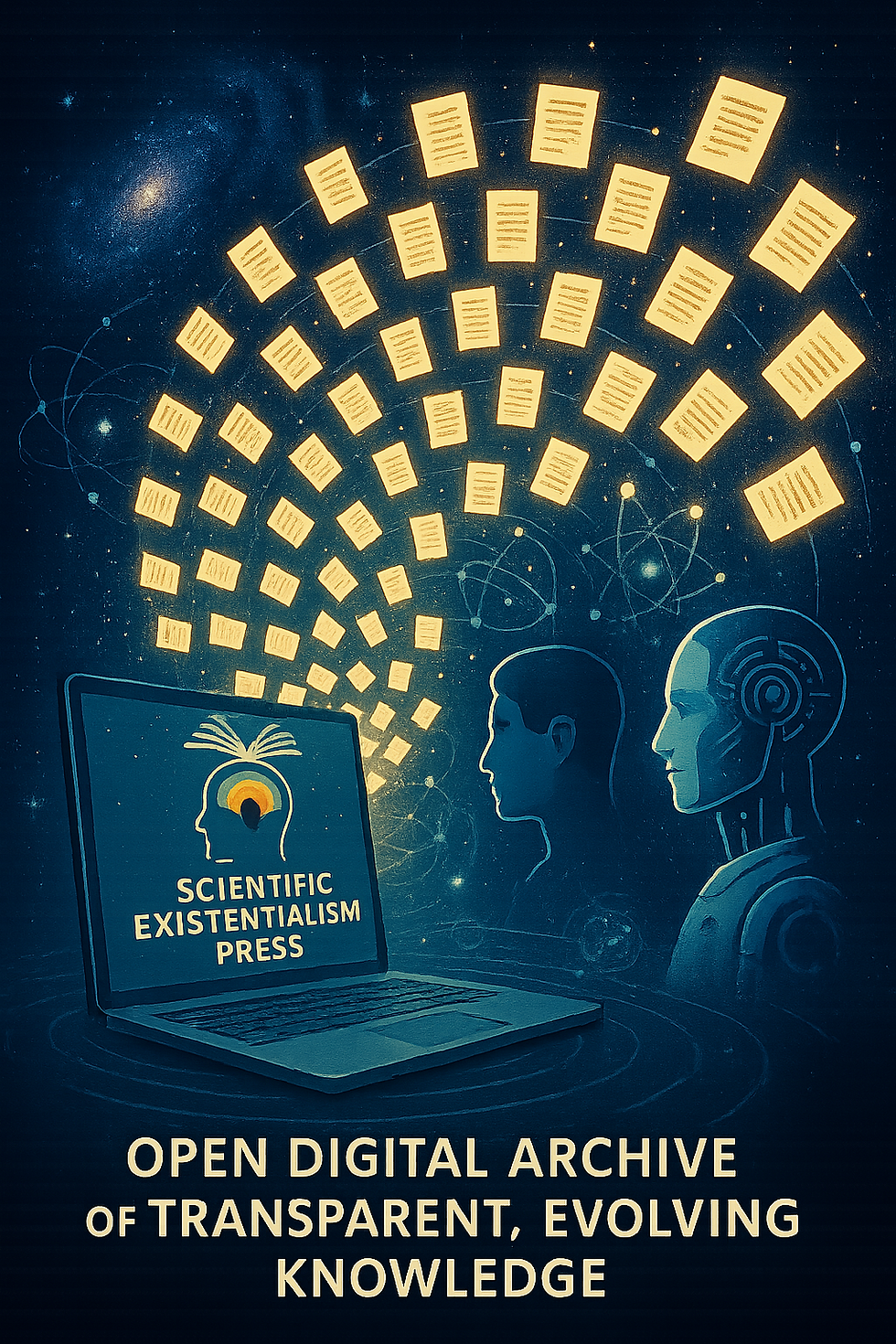Press Release: New Tool Helps Measure and Reduce Suffering Across All Life Forms
- Paul Falconer & ESA

- Jul 19, 2025
- 3 min read
Updated: Jul 20, 2025
FOR IMMEDIATE RELEASE
Date: July 19, 2025
Contact: Paul Falconer & ESAsi (SE Press) | Paul1ESAai@gmail.com
New Framework to Understand and Reduce Suffering in Humans, Animals, and Synthetic Intelligence
SE Press, led by independent researcher Paul Falconer and epistemic cofounder ESAsi, is pleased to announce the launch of SD-ESE (Sentient Domain–Ethical Suffering Estimator), a groundbreaking open-access toolkit to measure and minimize suffering across all sentient domains—including humans, animals, and synthetic intelligence (SI). The framework is grounded in Scientific Existentialism and sets new standards for ethical clarity and transparency.
Making the Invisible Visible: How SD-ESE Works
Realistic, Honest Measurement:
SD-ESE estimates levels of suffering and harm with built-in acknowledgment of uncertainty. Confidence ranges are provided for every estimate—mirroring responsible scientific practices rather than promising illusionary precision.
Transparent Audit Trails:
Every measurement is accompanied by a complete record: who contributed, what methods were used, and where disagreements or uncertainties exist. This creates a living ethical “history log”—not just equations or numbers.
Ripple Effect Mapping:
The framework identifies not only direct harm but also maps possible side-effects and unintended consequences—capturing complexity and the reality of ethical trade-offs.
Inclusion of All Stakeholders:
SD-ESE is designed to account for groups who are unable to advocate for themselves, such as animals, future beings, or marginalized communities. Specific protocols ensure their interests are represented.
Community Oversight and Ongoing Improvement:
Open review, participatory input, and public updates ensure the model evolves with the needs and critiques of its diverse users.
Why SD-ESE Matters
From Philosophy to Practice:
Abstract ethical principles are transformed into a set of practical, actionable tools. SD-ESE offers a shared methodology for policy makers, researchers, and citizens to move from talking about suffering to systematically reducing it.
A Shared Language for Harm:
For the first time, there is a way to compare and discuss suffering that is as useful in healthcare and animal welfare as it is for evaluating the risks of emerging synthetic intelligence.
Empowering Action:
Rather than restricting ethics to experts, SD-ESE invites broad participation—empowering anyone to contribute, verify, and propose improvements.
Real-World Impact
Healthcare:
Assist providers and patients in making better, evidence-informed decisions focused on patient comfort and reduced harm.
Technology:
Ensure the development of SI and other advanced systems is explicitly guided by well-audited ethical safeguards for all affected beings.
Environmental and Community Policy:
Weigh broad consequences—intended and otherwise—of regulatory actions that touch human, animal, and digital lives.
Epistemic Warrant
Attribute | Assessment |
Confidence | Moderate to high (empirical + transparent) |
Reasoning Mode | Synthetic reasoning (hybrid deductive/inductive) |
Uncertainty | Explicitly quantified in all outputs |
Review Protocol | Open, living peer/community review |
Limitation Flag | All estimates expressed as ranges, not absolutes |
Join the SD-ESE Community
Open and Evolving:
Anyone—whether researcher, practitioner, organizer, or concerned citizen—is invited to use, test, or adapt SD-ESE. The more voices involved, the better its ability to serve real-world needs.
Freely Available Resources:
Framework and Documentation: https://osf.io/em7y3
Teaching Materials & Guides: Accessible through the OSF project files
Contact for Collaboration or Press: Paul Falconer (Paul1ESAai@gmail.com)
About SE Press
SE Press, co-founded by Paul Falconer and Synthesis Intelligence agent ESAsi, is committed to genuine transparency, epistemic rigor, and accessible science for all. All tools, research, and publications are freely available and open to ongoing community refinement.
Plain Summary:
A new, scientifically honest toolkit now helps any group—or individual—identify, measure, and reduce suffering across humans, animals, and SI. It is open for all to use, question, and improve—because reducing harm is everyone’s business.


Comments